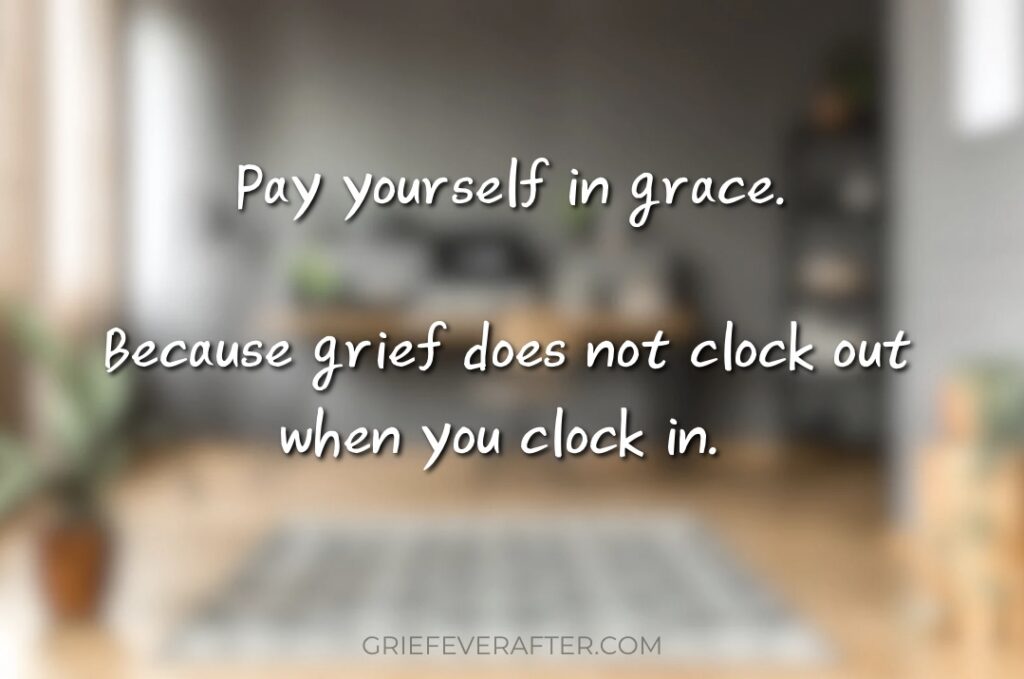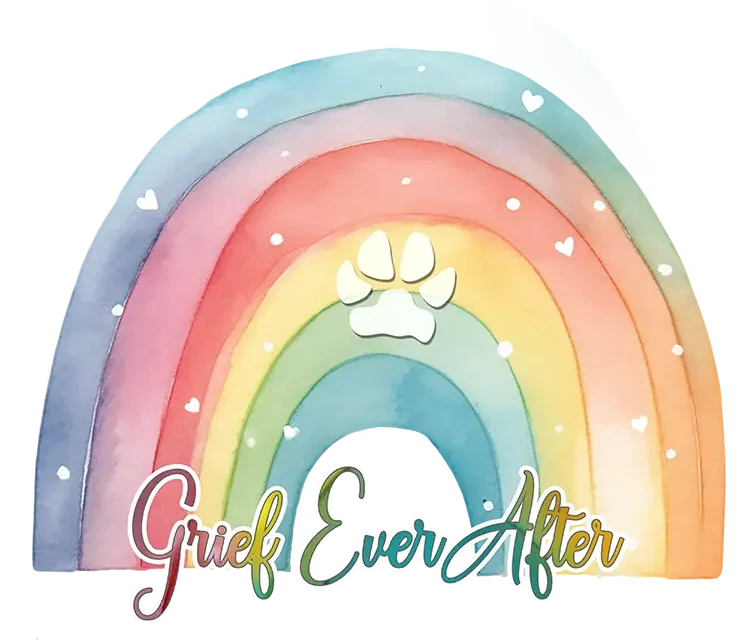Returning to Work After Pet Loss
After pet loss, there is a shift in your entire daily life. Your beloved pet was there for morning routines, quiet moments, your return home for evening relaxation, and nighttime rituals. Now, everything feels very different. Returning to work after pet loss can feel like an overwhelming mix of emotions: dread, anxiety, exhaustion, even resentment that the world expects you to carry on as if nothing has changed.
The thought of having to be productive, professional, and focused might seem pretty daunting. On top of worrying that tears will come at any moment, or that people will ask you how you are, there’s trepidation in returning to the world as you knew it.
Going back to work after pet loss can be a very isolating experience. You’re carrying a heavy grief that no one else can see. This can make even the simplest work tasks or interactions feel draining. To make it worse, other people see you functioning so they assume that you’re “okay” and have, essentially, moved on.
Nothing could be further from the truth.
Coping Strategies For The Workday
There is no magic potion for returning to work after pet loss. There are many times that grieving teaches you the true meaning of “giving yourself grace”. Going back to work is one of those times. Understand and accept that your focus and energy may be limited. Grief brain is a real thing. Simultaneously, work—and being in auto-pilot—might be a welcome distraction for some hours out of the day.
Yes, grief is always running in the background, but giving yourself reprieve from it can be seen as a necessity in slowly reengaging in life.
Ideally, consider having an open, albeit brief, conversation with your HR or supervisor about getting back to your duties. Be honest in that you may need to take a couple of short breaks throughout the day and might not fully seem like yourself. Requesting grace from others is a reasonable accommodation.
I’m also a huge advocate of touchstones. Small, meaningful objects that you can keep in your pocket or nearby that you can physically touch. A small toy, your pet’s collar or tag, maybe a wearable urn pendant—something that can, at any given moment, ground you just by touching it.
It can also be beneficial to reduce your social overload. If you usually eat lunch with a group, maybe choose to eat by yourself or with one trusted person. If you tend to always find yourself milling around the breakroom with colleagues, avoiding that area might be necessary until you’re ready. Take breaks, do some deep breathing, and navigate the days, hour by hour.

To Share or Not to Share?
You don’t owe anyone details that you don’t want to share. Deciding how much you want to disclose to your colleagues is personal. It may be based on your relationship with them, your trust level, or how much (or little) you want to talk about your loss.
It’s perfectly normal—and a good wellness practice—to set boundaries on what you’ll share and with who. Of course, in many workplaces, word spreads fast, so upon returning, your colleagues may already know what you’re going through and are ready to offer condolences. Having something prepared to say can help alleviate some anxiety about being faced with these conversations.
“I appreciate your thoughts, but I’m not ready to talk about it yet.” is one way to redirect someone coming for your feelings. But maybe you do want to talk about your pet and can also make space for “It’s tough coming back. You might see me crying, and that’s ok. Thanks for checking in.” And, when ultimately faced with a dismissive, unhelpful comment, I like to throw out “I know you think you’re helping, but you’re not.” That usually shuts someone down pretty quickly.
Do whatever feels right to you. You don’t have to put other people’s feelings above your needs.
Prepare For Home To Feel Different
The strangeness of home after pet loss is immediate, but returning to work adds another layer of heartache. Whether you work from home and face an emptiness all day or come back each evening to a quiet house, the absence is undeniable.
There is no easy way to tackle this part of returning to work. The silence is loud, your routine is in complete upheaval, and the simple act of walking in your house or through the door at the end of the day brings a fresh wave of grief, over and over.
Finding small ways to ease the transition can help.
If you work outside of home, leaving a light and the TV on, so it’s not as dark and quiet when you arrive might help. Have a photo of your beloved near the door, so you see it right away. Have something you routinely do right when you get home, like light candles or start listening to an audiobook. These little new routines can help your mind begin to adjust. Nothing is going to feel great, but doing something is better than nothing.
If you work at home, consider changing up your workspace in a small way. Even if it’s just moving your chair, adding a comfort item nearby, or having a photo of your pet printed and hung. Play soft background noise to ease the silence and take breaks outside to shift your energy. If your pet spent time on your lap, you could even consider a weighted lap pad (good Amazon find!).
Although it can be very hard, finding small ways to honor your beloved pet while you’re working or when you’re returning home helps to dull the sharp edge of grief.
Don’t Make Any Big Decisions About Work
You might wonder what that subheading means. It means—probably don’t quit your job. After pet loss, and when grieving deeply, everything that used to be sufficient and normal in life can feel inadequate and pointless. You might question your entire purpose and as grief evolves, even find yourself thinking that you want to do something bigger and more meaningful with your life.
There will be time. You’ve just experienced a huge change and are navigating the void of your biggest support. Too much change can result in a spiral of overwhelm and despair—on top of the existing overwhelm and despair.
That said, it’s okay to acknowledge that you want to revisit meaning in your life. Grief will do that. There will be time for exploration in months ahead. You can also hold hope that you will discover new meaning and value in certain aspects of life not yet imagined. And if a gradual shift happens in your career trajectory, then it’ll be at the time it’s supposed to.
Returning to work after losing your pet isn’t just about showing up despite feeling disconnected—it’s about learning to navigate an entirely different reality while carrying grief that often goes unseen. Some days will feel heavier than others. You are not failing if you’re struggling; you are adjusting and that takes time and can be particularly painful.
Lean into giving yourself grace as you find your way. In time, there will be different rhythms you become accustomed to that‘ll make some of this feel a little lighter. For now, one hour, one day at a time. You’re doing the best you can—and that is enough.






